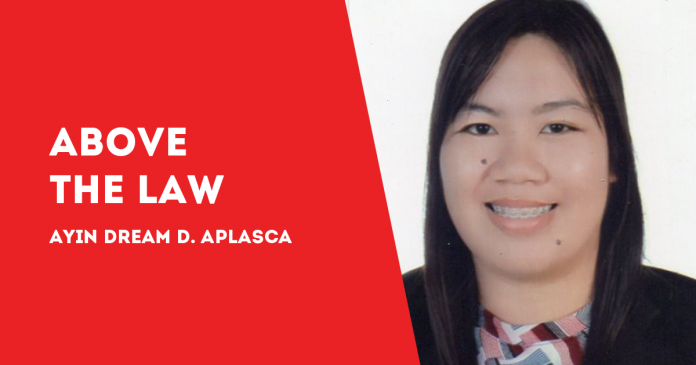
GENDER equality is a fundamental human right. It is necessary for nation-building and social and economic development.
Still, gender equality is one of the leading issues not only in the Philippines but in the entire world. There is gender stereotyping and a downside in women’s rights.
In our country, we have two provisions in the 1987 Philippine Constitution that recognize and protect women’s rights:
* Section 14, Article II states that “the State recognizes the role of women in nation-building and shall ensure the fundamental equality before the law of women and men.”
* Section 14, Article XIII states that “the State shall protect working women by providing safe and healthful working conditions taking into account their maternal functions, and such facilities and opportunities that will enhance their welfare and enable them to realize their full potential in the service of the nation.”
Various groups and individuals made efforts to broaden the campaign to promote gender equality. Even the legislature drafted and enacted laws on gender and development. The judiciary likewise formulated gender-related policies, gender sensitivity trainings, and database.
Recently, the Integrated Bar of the Philippines (IBP) held a webinar with the theme “Gender-Fair Language in Legal Writing.” It was attended by senior high school students, professors, lawyers, and IBP Chapters. The resource speaker was Atty. Nico Robert R. Martin who is currently the Assistant General Counsel of the Judicial Integrity Board of the Supreme Court of the Philippines.
I am grateful to join this webinar. I wanted to engage in this kind of discussion for me to enhance women’s rights to justice.
According to Atty. Martin, we do this kind of program not because we are lawyers. We do this because this is right and just. We do this because we want to remove explicit gender discrimination. We should start with our own craft – with our own bread and butter – in Legal Writing.
I totally agree with this because to be frank, the success of law students depends on how they answer the Bar exams and that includes legal writing. This happens also every single day when one becomes a lawyer – drafting of demand letters, complaints, judicial affidavits, briefs, motions and memorandum…the list goes on.
We may not be aware that we are already influenced by gender stereotypes in our legal writings. Thus, this webinar taught us how to be more conscious and sensitive when it comes to gender equality and stereotyping in our work.
During the webinar, Atty. Martin distinguished the difference between sex and gender. Sex is a biological term referring to the attribute of being either male or female depending on the sex organs or genes that they were born with. It also refers to the biologically determined differences between individuals that make them male or female.
On the other hand, gender is broader to denote a range of identities that do not correspond to established ideas of male and female.
It was also emphasized that we should be concerned on how we write our pleadings because this may create gender stereotyping where we may fall into the “over-generalized belief in the characteristics of a person based simply on their gender.”
Sexism in a language is used to devalue “members of one sex, almost invariably women, and thus foster gender inequality. It discriminates against women by rendering themselves or trivializing them at the same time that it perpetuates notions of male supremacy.”
So, it is important to be concerned about “mere” words because of three reasons:
1. language articulates consciousness
2. language reflects culture
3. language affects socialization
In the case of Gregorio vs De Jesus, as presented during the webinar, the Supreme Court says that “to write intelligently means that a person should know how to write as to be understood, or should know how to put his ideas in written words so that he be understood.”
While we recognize women’s rights, the actual situation shows that there is more to be done towards gender equality and stereotyping. As lawyers, we are the frontliners in the justice system and we play a vital and significant role to eliminate these stereotypes./PN

